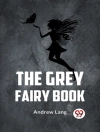In ‘In Search of Lost Time – Complete Edition, ‘ Marcel Proust embarks on a profound exploration of memory, time, and the intricacies of human experience. Notable for its stream-of-consciousness narrative style, the work intricately weaves together themes of nostalgia and identity as the narrator reflects on his past. Through meticulously detailed prose and an expansive scope that encapsulates the social fabric of late 19th and early 20th century France, Proust delves into the subtle nuances of everyday life, revealing the complexity beneath seemingly mundane interactions. The multi-layered structure and philosophical depth position this magnum opus as a landmark in modernist literature, inviting readers to ponder the nature of existence and perception. Marcel Proust, a figure synonymous with literary innovation, cultivated a deep fascination for art and the nuances of perception, influenced by his own experiences of loss and longing. His privileged background and rich cultural milieu, combined with both personal struggles and philosophical inquiries into aesthetics and memory, shaped his dedication to this monumental work. It took over a decade to complete, reflecting Proust’s dedication to capturing the essence of human experience in all its flawed beauty. ‘In Search of Lost Time’ is a quintessential reading experience for anyone intrigued by the complexities of memory and the passage of time. Proust’s lyrical prose invites introspection, making this comprehensive edition a vital addition to any literary collection. Engage with this towering achievement to enrich your understanding of not just literature, but the very fabric of life itself.
Tentang Penulis
Valentin Louis Georges Eugène Marcel Proust, born on July 10, 1871, in Auteuil, France, is best known for his monumental work ‘À la recherche du temps perdu’ (In Search of Lost Time), a seven-volume novel published between 1913 and 1927, which was translated into English by C. K. Scott Moncrieff. Proust’s magnum opus is renowned for its profound exploration of themes such as memory, time, and identity. Proust grew up in an affluent and cultured environment, which deeply influenced his appreciation for the arts and literature. His social observations and introspective narrative style immersed readers in the lives of 19th and early 20th-century French society, revealing the subtleties of social class and human psychology. A pioneer of the modern stream-of-consciousness technique, Proust sculpted a detailed and intricate portrait of the human condition, filled with poignant insights and lyrical prose. Despite battling chronic asthma throughout his life, Proust’s dedication to his art was unwavering. His work continues to be a cornerstone of literary studies and has profoundly impacted subsequent generations of writers and thinkers. The sheer depth and beauty of Proust’s language and character analysis have placed ‘In Search of Lost Time’ amongst the greatest literary achievements of all time.












